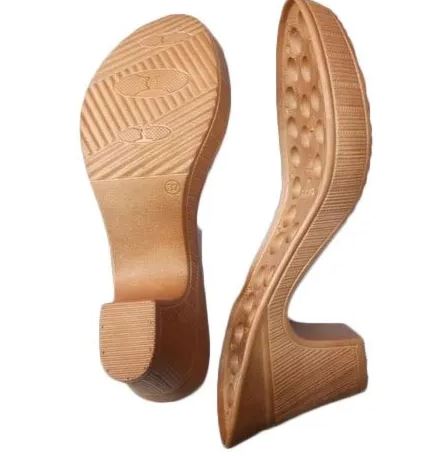Tel: 0129-4001010 Phone: +91 730 321 5033
Email: cs@absoluteveritas.com
BIS CERTIFICATION FOR SOLID PVC SOLES AND HEELS IS 6719:1972
In today's competitive landscape, maintaining market presence without a certified, high-quality product can be challenging. Obtaining a BIS license may also be essential for selling products in the Indian market. To achieve BIS certification and ensure product quality, manufacturers must adhere to the specified Indian standards.
Lets delve deeper into IS 6719:1972 for solid PVC soles and heels.
IS 6719:1972 addresses solid PVC soles and heels, focusing on their requirements for footwear manufacturing and repair purposes. This specification does not encompass sole and heel design or PVC composition, but rather emphasizes essential physical requirements.
This standard outlines the requirements, sampling procedures, and testing methods for PVC full solid soles, with or without heels, as well as half soles and heels sold as finished products. These items are manufactured using either the direct injection or stuck-on process. It's important to note that this standard does not cover all PVC shoe soles and heels.
The soles and heels should be crafted from PVC resin or a blend containing its copolymers. These resins are compounded with suitable plasticizers and stabilizers. The surface must be smooth, without any imperfections. The size and thickness of the soles and heels should be determined through mutual agreement between the purchaser and supplier. PVC soles and heels should have a hardness ranging between 65 and 75 IRHD. The material must meet the specified physical requirements outlined in the standard.
TESTS
The subsequent test must be conducted for PVC soles and heels.
-
Thickness test
-
Relative density test
-
Tensile strength test
-
Tear strength test
-
Volatility test
-
Test for lead
-
Hardness test and any other as specified in the standard.
A well-maintained laboratory is necessary for conducting the various tests outlined in the standard, following the specified methods.
Every sole and heel should display the manufacturer's name or trademark, if available, along with the designated size and type of footwear it's designed for. Additionally, the product may feature the ISI certification mark, and packaging and labeling must adhere to the appropriate standards. To utilize the standard mark (ISI Mark), the manufacturer must obtain a BIS license from the Bureau of Indian Standards. This license is granted following a thorough evaluation of manufacturing infrastructure, quality control and testing capabilities, and production processes.
PROCESS FOR BIS ISI MARK CERTIFICATION

BIS CERTIFICATION PROCESS
Acquiring a BIS license requires a comprehensive review of manufacturing infrastructure, quality control abilities, testing resources, and production procedures. This thorough assessment guarantees that products not only adhere to regulations but also prioritize consumer safety and reliability.
NOTE:
For comprehensive guidance on the BIS ISI Certification process, please explore:
WHY USE ABSOLUTE VERITAS?
Absolute Veritas is a prominent organisation from the private sector of India primarily dealing with the Inspection, Testing, Audits, Certification of products& consulting services to various industries in India and worldwide, ensuring compliance with regulatory standards and industry requirements. Offering a comprehensive range of services including product certification, testing, training, auditing, and compliance services, Absolute Veritas helps manufacturers and importers achieve higher production efficiency and quality standards.
Absolute Veritas (AV) will handle end to end pre-registration request, sample preparation, documentation, testing and application process for FMCS Certification
For any questions regarding the most recent update on FMCS registration licenses, please reach out to us via email at cs@absoluteveritas.com








 ❮
❮
